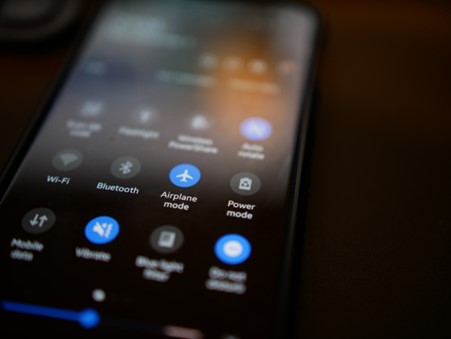9 Reasons to Use Airplane Mode Even If You’re Not Traveling
Most people are familiar with their device’s Airplane Mode. You've probably used it when jetting off to exotic locations. But did you know that it's...
Your smartphone is more than just a gadget; it’s your digital wallet, communication hub, and personal assistant—consolidated into one portable device. It's brimming with sensitive information, from your financial details to personal photos, making it an attractive target for cybercriminals.
Often, mobile malware doesn’t get the attention it deserves. While people are diligent about securing their laptops and desktops, they tend to overlook the security of their smartphones and tablets.
In 2023, we saw a staggering 50% increase in attacks on mobile devices compared to the previous year.
Hackers are well aware of the treasure trove that mobile devices represent. They deploy a variety of traps to trick users into downloading malware. Let’s delve into some common mobile malware traps and how you can avoid falling victim to them.
Mobile malware operates much like its desktop counterpart, aiming to compromise your device or pilfer your personal information. These malicious programs can infiltrate your smartphone in numerous ways, from covertly disguised apps to misleading links. Ignorance is not an option when it comes to mobile security; recognizing these common pitfalls is your crucial first step towards safeguarding your digital assets.
Here are a few more layers of protection you can use to fortify your smartphone's defenses.
Implementing these strategies can drastically elevate your smartphone’s security. Remember, it's always better to prevent issues than to deal with their consequences. Stay vigilant, stay informed, and take proactive measures to protect your digital life.
Your smartphone is an incredibly powerful tool, but it also presents a lucrative target for cybercriminals. By understanding the threats and taking the necessary precautions, you can avert potential disasters. Enjoy the convenience and benefits of mobile technology without compromising your personal or organizational security.
Many employees today use their personal devices for work, making them a prime target for mobile malware that can affect not just individuals but entire organizational networks. A single compromised device can lead to a catastrophic data breach, exposing sensitive information and jeopardizing company security.
Don't wait until it's too late—prioritize mobile security now. Our team of experts is ready to offer reliable solutions to safeguard all your devices, ensuring comprehensive protection for both personal and professional use.
Contact us today to schedule a chat about mobile device protection.

Most people are familiar with their device’s Airplane Mode. You've probably used it when jetting off to exotic locations. But did you know that it's...

You’ve built a solid business from the ground up. You’ve hired a talented team, your services are in demand, and customers are calling in regularly.

Ever been tempted to download the beta version of your favorite app, ready to test out all the cool new features before everyone else?